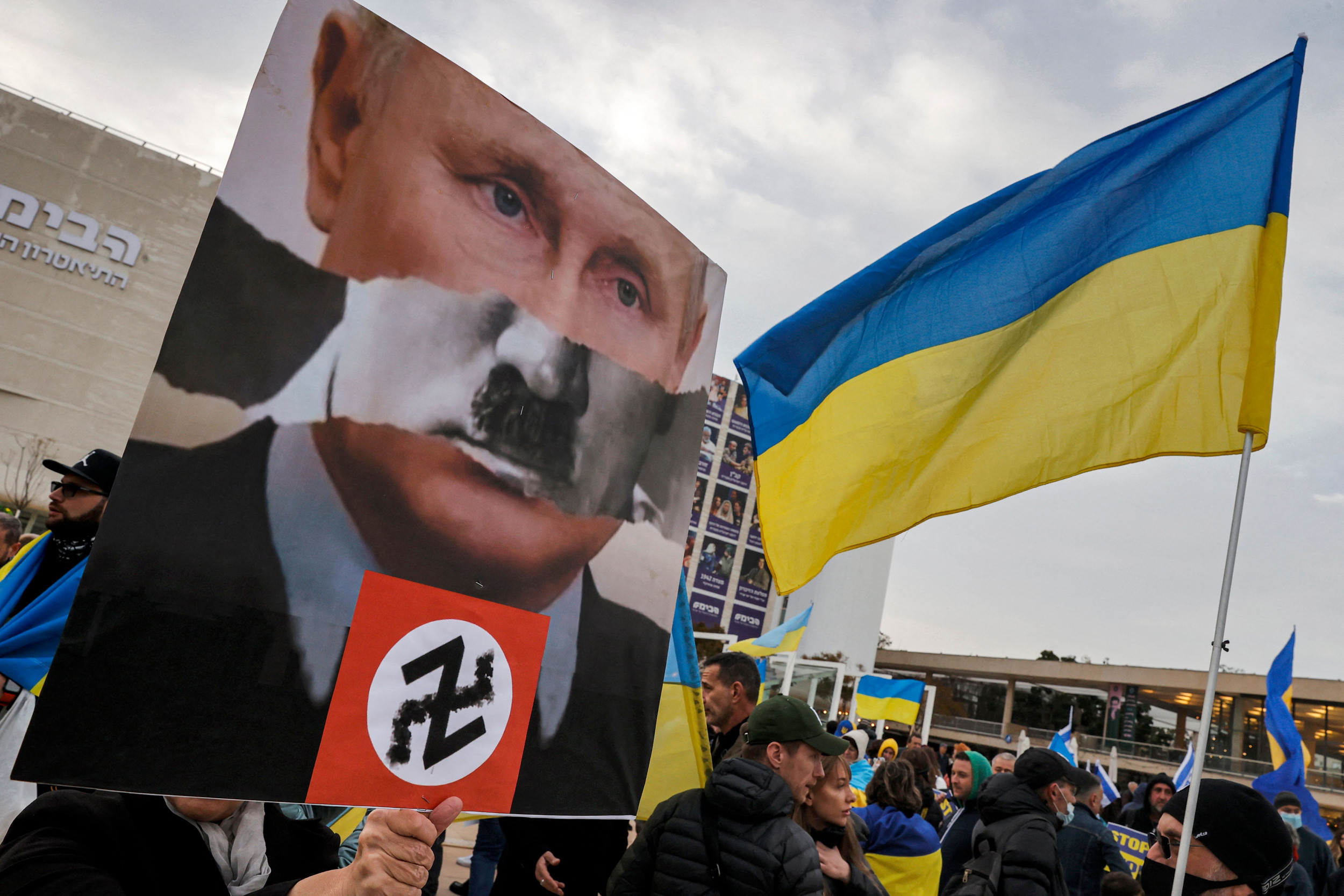Poetry seemingly praising Vladmir Putin and his invasion of Ukraine has been blocked by Russian authorities after its was discovered to be reworked Nazi verse from the 1930s and 1940s, it has been reported.
Putin likens the present war he started in Ukraine to the Soviet role in defeating Nazi Germany and tries to justify his full-scale invasion as the “denazification” of Ukraine.
But the irony of Putin framing his aggression with the vanquishing of Nazism in 1945 was not lost on a group of anti-war activists.
They lifted 18 poems from over eight decades and passed it off as contemporary patriotic pro-war poetry under the nom de plume of Gennady Rakitin, complete with an AI-generated image of the purported poet with silvery hair and goatee.
References to Germany were changed to Russia and one poem was called Leader, published with a photograph of Putin, which was actually originally called Führer and written by the Nazi-supporting writer Eberhard Möller. An ode to Nazi storm troopers was translated into Russian, repurposed as a tribute to fighters from the Wagner mercenary group.

JACK GUEZ/Getty Images
Russian journalist Andrei Zakharov, who was the first to reveal publicly that Rakitin was a fake persona, estimated nearly 100 Russian MPs, 30 senators and well-known pro-war cultural figures followed the account on social media network VKontakte. One poem reached the semifinal of a poetry competition.
But at the request of Russia’s Prosecutor General’s Office, VKontakte blocked the page of the fictional poet within Russia on July 4, independent Russian Telegram channel SOTA reported on Saturday. It noted however that it was still available outside the country. Newsweek has contacted the Kremlin and the Gennady Rakitin VKontakte account for comment.
An unnamed member of the group told The Guardian the idea for the prank was inspired by reading collections of Z poetry—named after the Z symbol of Russia’s war in Ukraine. They saw “straight-up Nazism” in the poems and “we suspected that they probably wrote exactly the same things in Nazi Germany.”
In a reflection of the climate of ultra-patriotism pushed by Russian authorities, some of the poems were shared by other pro-war Russian accounts. The group behind the fictional poet explained it was a prank in its last post on June 28, which said it had “mocked” Z poems” when its message was “f*** the war.”
The group told The Guardian it revealed the plan because “it was morally exhausting to endlessly be in the gloominess of Russian Z world.”
Uncommon Knowledge
Newsweek is committed to challenging conventional wisdom and finding connections in the search for common ground.
Newsweek is committed to challenging conventional wisdom and finding connections in the search for common ground.
